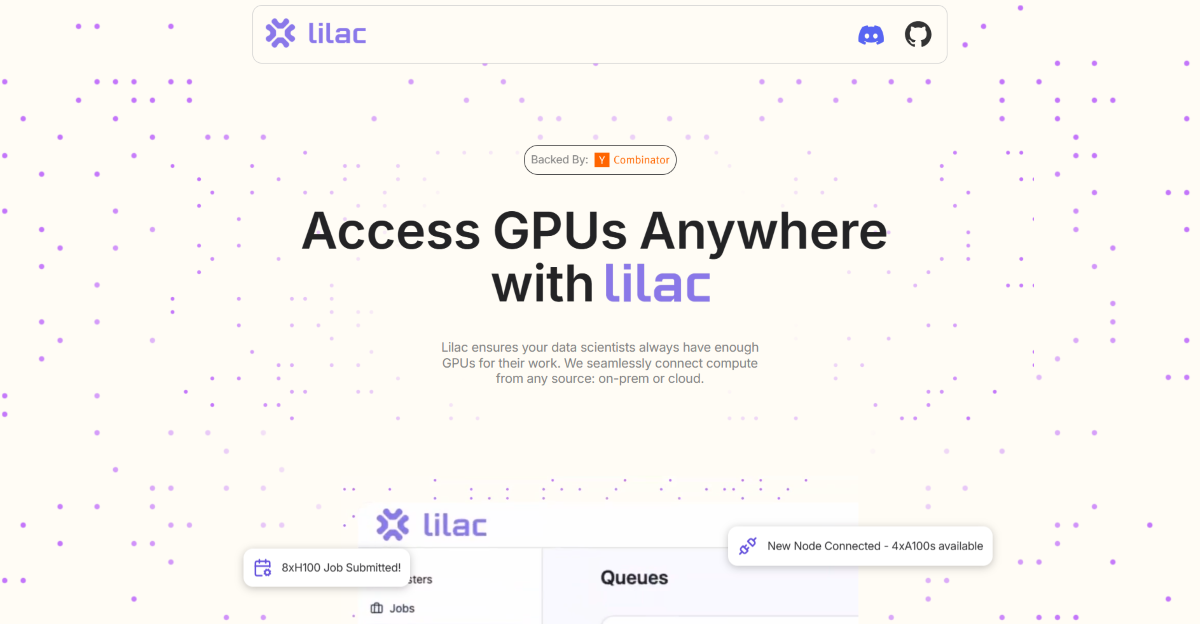Managing your money effectively requires the right tools for your specific situation.
Managing your money effectively requires the right tools for your specific situation. Choosing between powerful financial management systems can significantly impact how you track expenses, plan for the future, and achieve your financial goals. QuickBooks and YNAB (You Need A Budget) represent two distinct approaches to financial management that serve different purposes and audiences.
Both platforms have earned loyal followings thanks to their robust feature sets and user-friendly interfaces. QuickBooks has established itself as the industry standard for business accounting with comprehensive tools for tracking income, expenses, and generating detailed reports. YNAB takes a different approach, focusing exclusively on personal budgeting with a philosophy that helps individuals break the paycheck-to-paycheck cycle.
What Makes QuickBooks Stand Out?
QuickBooks has become synonymous with small business bookkeeping for good reason. This comprehensive accounting software from Intuit offers a complete suite of tools designed to give business owners clear visibility into their financial health. The platform has evolved significantly over the years to meet the changing needs of businesses across various industries.
How Does QuickBooks Support Business Operations?
QuickBooks employs double-entry bookkeeping principles to ensure accuracy in financial records. Every transaction gets recorded against two accounts, creating a balanced ledger that accountants and tax professionals can easily understand and work with. This meticulous approach helps business owners maintain clean books and simplifies tax preparation.
The platform excels at handling complex business requirements like inventory management, making it ideal for retail operations and product-based businesses. Users can track stock levels, set reorder points, and monitor product performance all within the same system they use for financial management. This integration eliminates the need for separate inventory tracking solutions.
QuickBooks also streamlines the invoicing process with customizable templates and automated payment reminders. Business owners can create professional-looking invoices, track payment status, and even offer clients multiple payment options. These features help improve cash flow by reducing the time between completing work and receiving payment.
Who Benefits Most From QuickBooks?
Small to medium-sized business owners represent the primary audience for QuickBooks. The software provides the comprehensive accounting features necessary to manage business finances effectively without requiring an accounting degree. Users can generate the reports needed for tax preparation, business planning, and financial analysis.
Companies with inventory management needs find particular value in QuickBooks. The system tracks product quantities, costs, and sales data automatically, eliminating manual record-keeping and reducing errors. This functionality proves especially valuable during growth phases when manual tracking becomes impractical.
Businesses with employees benefit from QuickBooks' payroll integration capabilities. The platform handles tax calculations, direct deposits, and tax form generation, reducing administrative burden and ensuring compliance with tax regulations. These features save time and reduce the risk of costly payroll errors.
What Features Make QuickBooks Essential?
Robust accounting tools: QuickBooks provides comprehensive double-entry bookkeeping functionality that ensures accuracy and completeness in financial records. The system automatically balances debits and credits, reducing errors and simplifying reconciliation processes.
Invoicing and payment processing: The platform offers customizable invoice templates, automated payment reminders, and integrated payment processing. These features help businesses maintain consistent cash flow and reduce administrative work associated with collections.
Inventory management: For product-based businesses, QuickBooks tracks inventory levels, costs, and sales performance. The system can automatically update inventory counts when products are sold and alert users when stock needs replenishing.
Comprehensive reporting: QuickBooks generates detailed financial reports including profit and loss statements, balance sheets, and cash flow analyses. These reports provide insights that help business owners make informed decisions about their operations.
Why Choose YNAB For Personal Finances?
YNAB represents a fundamentally different approach to money management focused exclusively on personal budgeting. The platform builds on the principle of zero-based budgeting, which requires users to assign every dollar they earn to a specific purpose. This methodology helps people gain control over their spending and build financial stability.
How Does YNAB Transform Personal Budgeting?
YNAB encourages users to "age their money" by breaking the paycheck-to-paycheck cycle. The system helps people work toward using last month's income to pay this month's expenses, creating a financial buffer that reduces stress and provides greater flexibility. This approach fundamentally changes how people think about their money.
The platform makes budgeting accessible through an intuitive interface that clearly shows available funds, spending by category, and progress toward financial goals. Users can quickly understand their financial position and make adjustments as needed. This visibility helps people make more intentional decisions about their spending.
YNAB also emphasizes flexibility in budgeting, acknowledging that life rarely goes exactly as planned. The system makes it easy to move money between categories when priorities change, encouraging users to adapt their budget rather than abandon it when unexpected expenses arise. This realistic approach helps people stick with budgeting long-term.
Who Gets The Most Value From YNAB?
Individuals struggling with living paycheck to paycheck find YNAB particularly valuable. The platform provides the structure and guidance needed to build financial stability gradually. Users often report significant reductions in financial stress after implementing YNAB's methodology.
Couples seeking to manage household finances together benefit from YNAB's collaborative features. The platform allows partners to share access to their budget, facilitating communication about financial priorities and goals. This transparency helps prevent misunderstandings and conflicts about money.
People working to pay off debt find YNAB's focused approach helpful for making consistent progress. The system encourages users to prioritize debt repayment while still meeting essential needs. Many users report accelerated debt payoff after implementing YNAB's budgeting principles.
What Makes YNAB Different From Other Budgeting Tools?
Zero-based budgeting philosophy: YNAB requires users to assign every dollar a specific job, eliminating idle money and encouraging intentional spending. This approach helps people maximize the utility of their income and avoid wasteful spending.
Proactive financial planning: Rather than simply tracking past spending, YNAB focuses on planning future expenses. Users allocate money to categories before spending it, which helps prevent overspending and builds awareness of financial priorities.
Flexible category customization: The platform allows users to create personalized budget categories that reflect their specific needs and priorities. This customization makes the budget more relevant and easier to maintain over time.
Comprehensive educational resources: YNAB provides extensive learning materials including video tutorials, live workshops, and a supportive community. These resources help users implement effective budgeting practices and overcome common challenges.
How Do These Platforms Compare Directly?
Understanding the key differences between QuickBooks and YNAB helps clarify which platform might better serve your needs. These systems were designed with different purposes in mind, resulting in significant variations in functionality, complexity, and overall approach to financial management.
What Are The Core Functional Differences?
QuickBooks focuses on comprehensive business accounting with features like double-entry bookkeeping, invoicing, and tax preparation. The system provides the detailed financial tracking and reporting businesses need for operational management and compliance. These capabilities make QuickBooks significantly more complex than personal finance tools.
YNAB concentrates exclusively on personal budgeting with an emphasis on proactive planning and mindful spending. The platform helps individuals allocate their income intentionally and track progress toward financial goals. This focused approach makes YNAB more accessible for personal finance management but less suitable for business applications.
The reporting capabilities differ substantially between the platforms. QuickBooks generates detailed financial statements required for business management and tax compliance, while YNAB provides simpler reports focused on budget performance and progress toward financial goals. These differences reflect the distinct needs of their target users.
How Do The User Experiences Compare?
QuickBooks presents a steeper learning curve due to its comprehensive feature set and accounting terminology. New users often need time to become familiar with concepts like accounts receivable, accounts payable, and general ledgers. The complexity provides power and flexibility but requires more initial investment in learning.
YNAB offers a more intuitive experience focused on basic budgeting concepts that most people can quickly grasp. The platform uses straightforward language and provides contextual guidance throughout the budgeting process. This accessibility helps users get started quickly and see immediate benefits from budgeting.
Support resources also differ between the platforms. QuickBooks provides extensive documentation and technical support focused on software functionality, while YNAB emphasizes educational content about budgeting principles and financial management. These different approaches reflect their distinct purposes and user needs.
What Should You Consider About Pricing?
QuickBooks pricing considerations:
- Subscription tiers vary based on feature needs and number of users
- Higher costs reflect comprehensive business functionality
- Additional fees may apply for services like payroll processing
- Pricing scales with business growth and increasing feature requirements
YNAB pricing considerations:
- Simple subscription model with free trial period
- Lower overall cost compared to business accounting software
- Value proposition focuses on money saved through better budgeting
- No hidden fees or complex pricing structures to navigate
How Can You Choose The Right Platform?
Selecting the appropriate financial management tool requires honest assessment of your specific needs and circumstances. Consider not only your current situation but also how your requirements might evolve in the coming years as your financial life changes.
What Questions Should Guide Your Decision?
Do you need to manage business finances or personal budgeting? This fundamental question should drive your initial decision-making process. QuickBooks serves business accounting needs, while YNAB focuses exclusively on personal budgeting. Matching the tool to your primary purpose ensures you get the functionality you need.
How complex are your financial tracking requirements? Consider whether you need features like inventory management, payroll processing, or detailed financial reporting. More complex needs generally point toward QuickBooks, while simpler personal budgeting aligns better with YNAB's focused approach.
What level of accounting knowledge do you possess? QuickBooks assumes some familiarity with basic accounting principles, while YNAB requires no specialized knowledge. Your comfort level with financial terminology and concepts may influence which platform feels more accessible and useful to you.
When Should You Choose QuickBooks?
Choose QuickBooks when you need comprehensive business accounting capabilities. The platform excels at tracking business income and expenses, managing accounts receivable and payable, and generating the financial reports needed for tax preparation and business planning. These features make it indispensable for most business operations.
Select QuickBooks if you require inventory management functionality. The system tracks product quantities, costs, and sales data automatically, eliminating manual record-keeping and reducing errors. This integration provides valuable insights into product performance and profitability.
Opt for QuickBooks when you need multi-user access with permission controls. The platform allows business owners to share access with bookkeepers, accountants, and other team members while maintaining appropriate security. This collaboration capability streamlines financial management for growing businesses.
When Does YNAB Make More Sense?
Choose YNAB when your primary goal involves personal budgeting and financial planning. The platform's zero-based budgeting approach helps individuals allocate their income intentionally and avoid overspending. This methodology proves particularly effective for breaking the paycheck-to-paycheck cycle.
Select YNAB if you prefer simplicity and accessibility in financial management. The platform uses straightforward language and concepts that most people can quickly understand and apply. This accessibility helps users get started quickly and maintain consistent budgeting habits.
Opt for YNAB when you value educational resources and community support. The platform provides extensive learning materials and a supportive user community that helps people implement effective budgeting practices. These resources prove especially valuable for those new to intentional financial management.
Can You Use Both Platforms Together?
Many people with both personal and business financial management needs find value in using both platforms simultaneously. This combined approach leverages the strengths of each system while maintaining appropriate separation between business and personal finances.
How Do They Complement Each Other?
Business owners benefit from maintaining clear separation between personal and business finances. Using QuickBooks for business accounting and YNAB for personal budgeting helps maintain this important boundary. This separation simplifies tax preparation and provides clearer visibility into both areas of financial life.
The different philosophies of the platforms can reinforce good financial habits. QuickBooks provides the detailed tracking and reporting needed for business management, while YNAB encourages intentional allocation of personal income. Together, they create a comprehensive approach to financial management.
Integration tools like Zapier can automate data transfer between the platforms when needed. These automations can save time and reduce errors when information needs to flow between business and personal financial systems. The specific setup depends on individual needs and preferences.
What Are The Best Practices For Dual Platform Users?
- Establish clear boundaries between business and personal finances to maintain accurate records for tax purposes.
- Schedule regular review sessions for each platform to ensure both areas of your financial life receive appropriate attention.
- Consider how owner draws or salary payments flow between the systems and establish consistent processes for these transfers.
- Use consistent category structures where possible to simplify mental transitions between the platforms.
- Leverage the strengths of each platform rather than trying to force either one to serve all your needs.
Start Your Financial Management Journey Today
Taking control of your finances requires the right tools and a commitment to consistent management practices. Whether you choose QuickBooks, YNAB, or a combination of both, the most important step involves getting started and establishing regular financial review habits.
How To Begin With Your Chosen Platform
Start with a clear understanding of your financial goals before implementing any system. Define what success looks like for your business or personal finances so you can configure your chosen platform accordingly. This clarity helps ensure the system serves your specific needs effectively.
Take advantage of available training resources to accelerate your learning curve. Both QuickBooks and YNAB offer extensive documentation, tutorial videos, and community forums that can help you implement best practices from the beginning. These resources can significantly reduce frustration during the setup process.
Begin with basic functionality and gradually incorporate more advanced features as you become comfortable with the system. This incremental approach prevents overwhelm and allows you to build confidence with the platform. Most users find that mastering core functions first leads to more successful implementation overall.
Why Financial Clarity Matters More Than The Tool
Financial management tools provide structure and automation, but the real value comes from the visibility and insights they offer. Regular engagement with your financial data helps you identify trends, spot potential issues early, and make informed decisions about resource allocation. This awareness proves more valuable than any specific feature.
Consistency matters more than perfection when implementing financial management systems. Establishing regular habits for reviewing and updating your financial information yields better results than sporadic intensive sessions. Start with manageable practices you can maintain long-term.
The journey toward financial control begins with a single step—choosing a system and committing to use it consistently. Whether you select QuickBooks for business management, YNAB for personal budgeting, or both platforms for comprehensive coverage, taking action today creates the foundation for greater financial clarity and confidence tomorrow.
Simplify Startup Finances Today
Take the stress out of bookkeeping, taxes, and tax credits with Fondo’s all-in-one accounting platform built for startups. Start saving time and money with our expert-backed solutions.
Get Started









.png)









